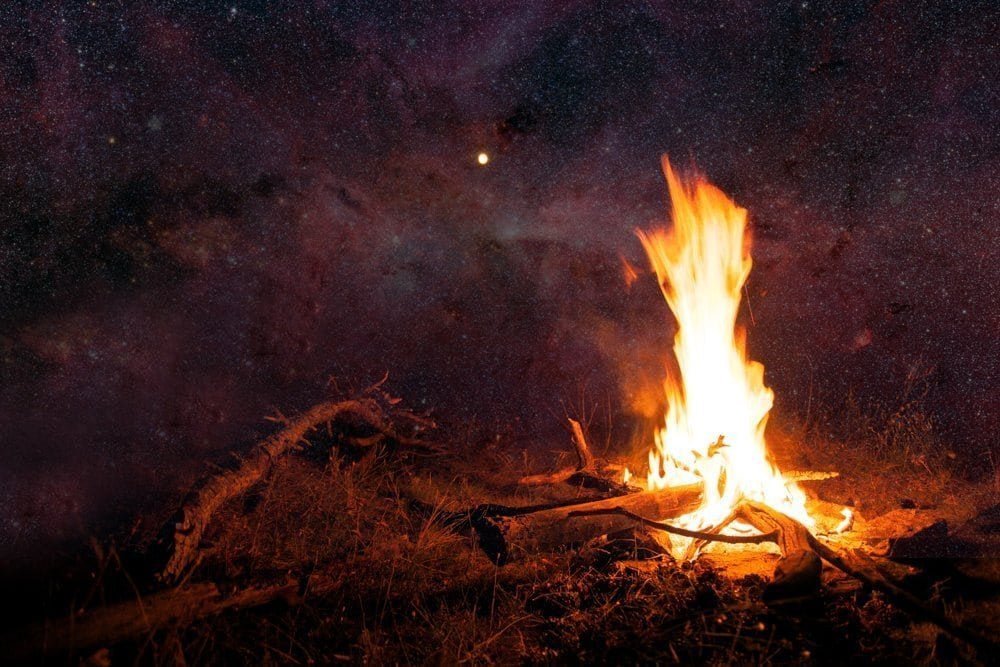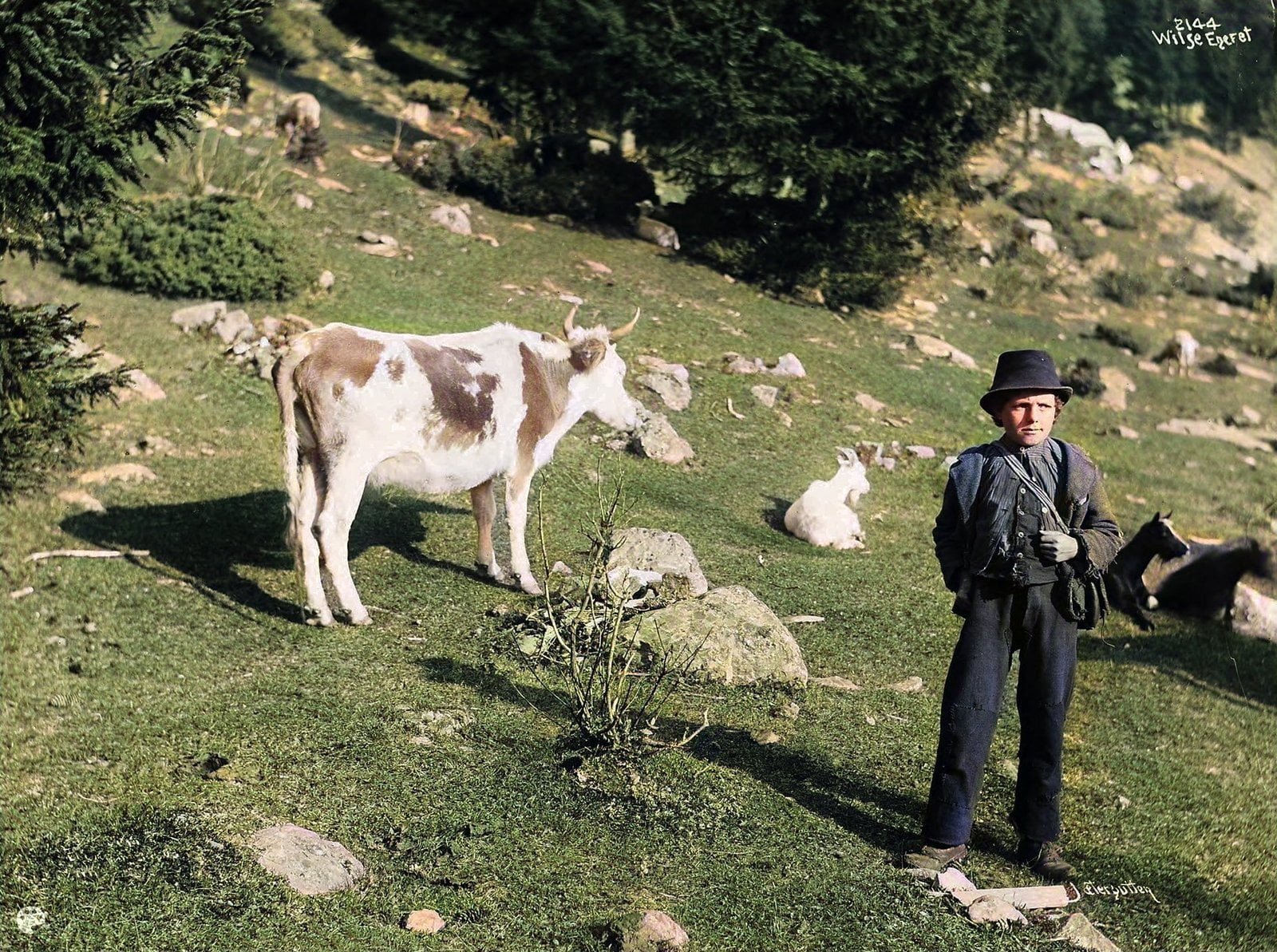This post is based on the childhood memories of Othilie Johnsen, born 1894 in Kiby, Finnmark, Thomas Johansen, born 1883 in Kvalnes, Nordland, and Mimmi Benjaminsen, born 1894 in Værøy, Nordland – all from northern Norway, and collected in the 1960s.
We were rich in other ways
I have happy memories from my childhood. We didn’t have much of gold and riches, but I can’t say that we ever felt poor. As long as we had food on the table and clothes to keep us warm, we were happy and felt blessed.
My parents were honest and hardworking, and I admire them for their life’s work. In my eyes, there was nothing they could not do, and with their own hands, they created almost everything we owned.
Christmas
Christmas was an exciting time for us children. Outside it was dark and cold, but inside our simple home there was light, both from the fire and in a spiritual sense.
The weeks leading up to the big day were full of hustle and bustle. There was lots of activity all year round, but Christmas came with something special. It was like a rush that took us through the darkest days of winter – and delivered us safely into the new year.
The new year came with a renewed promise of spring, and the bright light of summer.
The travelling salesmen
Every year, as regular as clockwork, travelling salesmen came knocking on our door just before Christmas. Many of them had walked far, carrying their wares from house to house.
We children watched intently as they opened their magical bags. Colourful paper and shiny objects tickled our imagination.
We almost burst with pride if Father went to get his wallet to buy something. Later, Mother let us admire the treasures for a short while, before putting them into the large corner cabinet.
If it was not too late in the day, we rushed over to our neighbours to share our exciting news. Each time we repeated the tale of our purchase, the colours became brighter, and the treasure in the corner cabinet became even more magical.
Trivial things gave us so much joy back then. Nothing is more beautiful than the look of joy on a child’s face, or the feeling of contentment and pride.
Christmas cards and gifts
Sending Christmas cards was a new custom in our community in the late 1800s. To ensure a reply before Christmas, it was important to send them early.
The teenagers were the most active. When Christmas came, they counted the number of cards that they had received – and compared the number and the cards’ artwork with their friends.
It was not common to give each other Christmas presents, but the children often got something new, something we needed. It could be a pair of boots, socks, or mittens.
No Christmas tree
Today, we often think of the Christmas tree as the centre of our decorations. But in my childhood, it was quite unheard of. People saw the tree as unchristian, as a sign of idolatry.
It is strange how customs and beliefs slowly change, and how new generations adopt new ways.
Christmas preparations
Today, we spend more and more of our pre-Christmas weeks and days in shops. This can stand as a symbol of how different our society has become, and it has all happened during my lifetime.
In the old world, people made and prepared everything at home, using their own two hands.
A big focus was the preparation of the Christmas food, enough to last throughout the season. Even for families with limited resources, the food had to represent something different from everyday life.
The Christmas preparations gave people a sense of dignity and pride.
Christmas dram and beer
My father made the Christmas beer and the Christmas dram himself. This was quite a process and took a long time. He made both drinks from the farm’s own produce.
He made dram from potatoes, mixed with yeast made from hops and flour. After boiling the potatoes, he mashed them in with the water. Then, he added the yeast to the watery mash – and set it all aside to ferment until it was ready for distillation.
The finished drink was strong, and to soften the blow, he offered a piece or two of sugar with each small glass of dram.
Father made the Christmas beer from grain. To start the sprouting process when making malt, he put the sacks of grain into the creek to soak for a day or two.
Making beer had a feeling of secrecy about it, and each family added their own magic to the final brew.
Christmas Eve
In our home, Christmas started at 4 o’clock on Christmas Eve. Mother prepared the table, and served meat, rich broth, and flatbread.
There was no regular dinner at noon on that day, and we went extra hungry to the table.
We dunked pieces of flatbread in the broth – and Mother let us have as much meat as we could bear to eat.
Father read prayers both before and after the meal.
Next, we all had a rest, and everything and everyone had to be quiet. My parents only left a simple candle burning.
But by 6 o’clock we were all awake and alert again, ready for the sound of distant church bells. Both young and old listened quietly, and when the bells fell silent, my father read the story of the Nativity.
Later came the highlight of the day: the extra rich and tasty Christmas porridge. On top, we had sugar, cinnamon, and a big lump of butter. And again, Mother let us eat as much as we wanted. The two meals on Christmas Eve were true bliss.
Christmas Day
Back then, there were not enough priests to cover every parish, so they had to alternate. If it was our year to have the priest on Christmas Day, we all went to church. If not, my father read from the bible, and we sang hymns galore.
Except for the potential trip to the church, no one could go outside on this day; everything was to be quiet. We children were not happy about this – and struggled to keep still.
Also on this day, rich food found its way onto the table, and the meals kept us busy for a while.
Let the celebrations begin
On 26 December, the world opened once again. People travelled from house to house, and often did so on and off until the 13th day of Christmas.
There was food and there were toasts, and sometimes a wedding at the top of the year.
And then a new journey began
When the holiday season celebrations ended on the 6 January, we were ready for the new year.
The men got restless and started preparing for the winter fishing expeditions. When they left, the womenfolk of the community once again took full charge of the many duties on the farm.
Happy childhood memories
Our modern-day life may have made our existence easier, but I remember my simple childhood Christmases with great joy. Just like the treasures in the corner cabinet, I store the memories in my heart. I treasure the memories of my beloved mother and father – my siblings – my grandparents – and all the great people that once enriched my life so very much.
Source: Eidnes, Asbjørn (ed). I manns minne – Nord-Norge. Nasjonalforeningen for Folkehelsen. Det Norske Samlaget 1973. | EGP.00034











